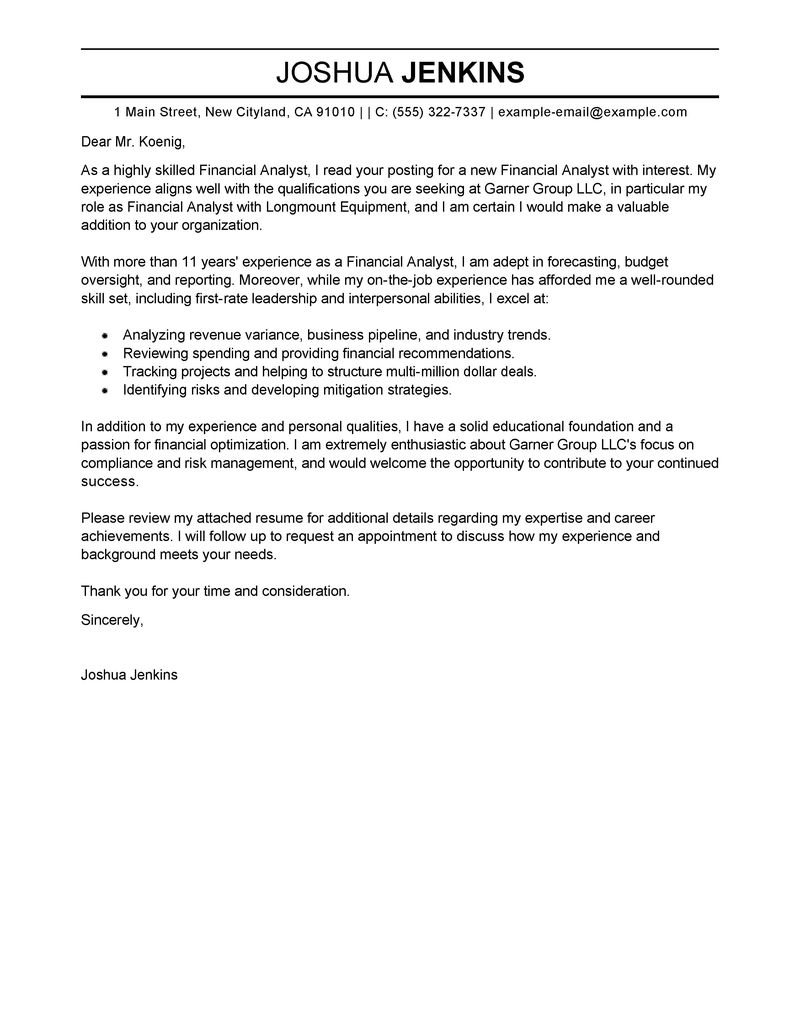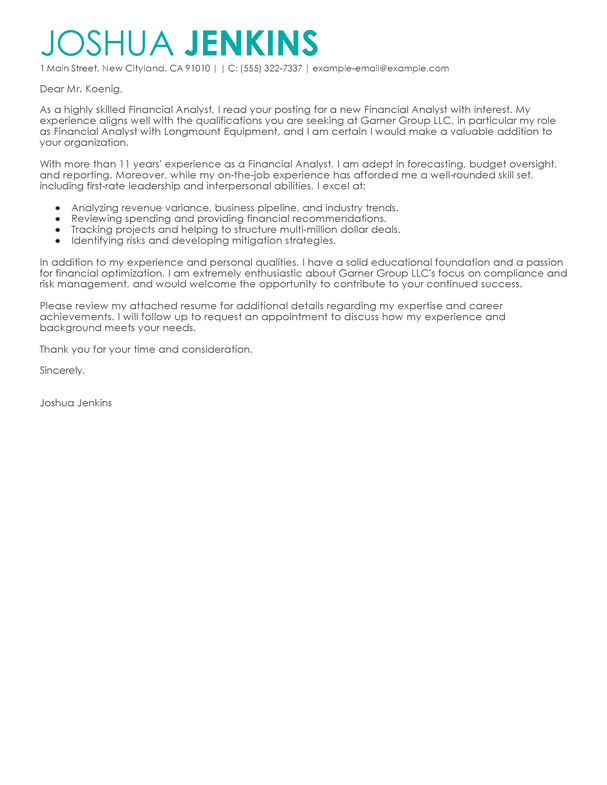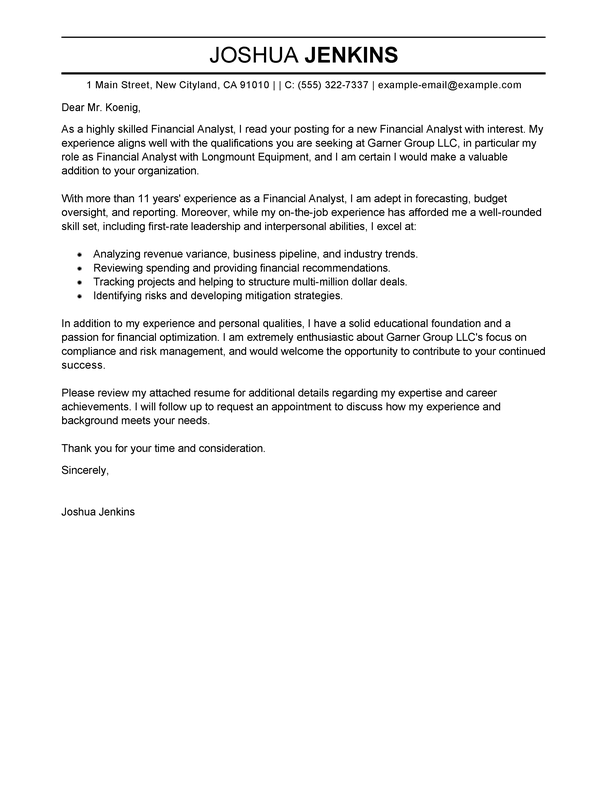Best Analyst Cover Letter Examples
Published: Friday 14th of July 2017; Words Count: 1650
When seeking employment in the competitive financial industry, jobseekers have to take every opportunity to be noticed. A strong cover letter can capture a hiring manager’s attention enough to make him or her want to peruse your resume and ask for an interview. To stand out among other potential candidates, follow these tips and read our analyst cover letter example.
- Do list specific and relevant skills that will impress the hiring manager. In our example cover letter, the candidate identifies the company’s focus and tailors his list of skills appropriately.
- Don’t be boring. In this industry, you may want to stick to a professional voice and traditional layout for your cover letter, but don’t forget that you’re a person, not a robot. Display some personality in your writing.
- Do use the company’s tone in your writing. Spend time researching the company to understand its language, values and goals and incorporate that to show why you are the best applicant for the position.
- Don’t write too much about your education. Notice how the jobseeker in the cover letter example only briefly mentions his education and instead emphasizes his valuable skills.
Analyst Advice
In the world of finance, an analyst is responsible for implementing and maintaining financial software. The cover letter examples below have been created for financial analysts searching for new positions. Check out these cover letter examples for ideas on how to write an impressive cover letter, catch the attention of employers, and get hired sooner. Just click on any of the options to get started.

Cover Letter Tips for Analyst
Searching for jobs as a Analyst involves much of the same challenges as searching for jobs anywhere else. By keeping in mind these general job searching skills, it won’t matter where you’re looking for workÂyou will be successful.
1. Boost your online presence by reading industry blogs and posting informed comments. Consider doing some of your own blogging if you are a good writer. Companies will check all of these online sources of information about you.
2. Make sure to follow up by emailing and calling back the jobs you’ve applied for. A company not calling you back is not the same as receiving an answer of Âno. “
3. Even if you do get rejected, consider it as a growing opportunity and a chance to work somewhere even better. Whatever you do, keep a positive attitude and maintain you search with the same fervor.
4. Don’t just wait for companies to interview you, but take charge and do some interviewing yourself. Setting up informational interviews can be a great way to find out the things you need to know about a company, and it never fails to make a strong first impression.
5. Stick with it for the long haul by thinking of your search like a marathon rather than a race. While you should be on top of opportunities and changing developments, don’t settle or cut yourself short immediately once you land the first jobÂthere will be more to follow.

Analyst Job Seeking Tips
There are a lot of strategies and techniques to keep in mind so you can have the strongest possible cover letter. This brief list of some of the best cover letter-writing strategies will be an invaluable resource as you apply for jobs as a Analyst.
1. When you write your cover letter, all of your lists should be in bullet format. This is a standard format and it will help you keep track of how much information you’re including while keeping it organized.
2. Stay away from Microsoft Word
3. Your accomplishments are what make you a superior candidate, and you should focus on highlighting these. You can make a separate list if you have three or more accomplishments, or you can weave them into your description of your work experience.
4. Make sure to list the name of the school you received your education from, then the degree program and year of graduation. If you have completed some college, do not include that you graduated high school or obtained a GED.
5. Don’t include irrelevant information like hobbies or what you do outside of work. Volunteering and membership in organizations is one thing, but being a master chess player will not help you get a welding job.






